July 23 - NextGen Diaries (completing the foundational trifecta)
Part 1 - GUE photogrammetry diver, scientific diver and now documentation diver!
For the end of June, beginning of July, I travelled back to the Netherlands again for another course (the perks of having direct flights from Newcastle UK, and a huge GUE community over there!). However, this time I was travelling to just south of Amsterdam / Rotterdam, to a small village called Vinkeveen Plassen. It was unlike any place I had seen honestly - and I loved it. With the main road skirting a giant lake, and lots of the houses stretching out on tiny roads into the lake itself - or even over it in little boathouse communities - it was a great training ground for the next week.
Finding dates that serendipitously worked with my crazy schedule back in March, I now arrived at Scuba Academie for a GUE Documentation Diver course with JP and Anne Marie Bresser - feeling both excited and intrigued! Documentation Diver was not initially on my radar, given my initial preferences for Photogrammetry, Scientific Diver, Rec 2 and experience of instructing / education during my scholarship year (see courses). I was not sure of what to expect. However - now I have completed all 3 foundational courses, I can say that Documentation is so necessary to fill in the gaps between the other two; and would even advocate for it to be a pre-requisite for the project weeks that the GUE community can partake in!
PSA - I always offset my carbon footprint on flights / transport as I am aware of the amount that I am travelling, and the air miles that I am doing.
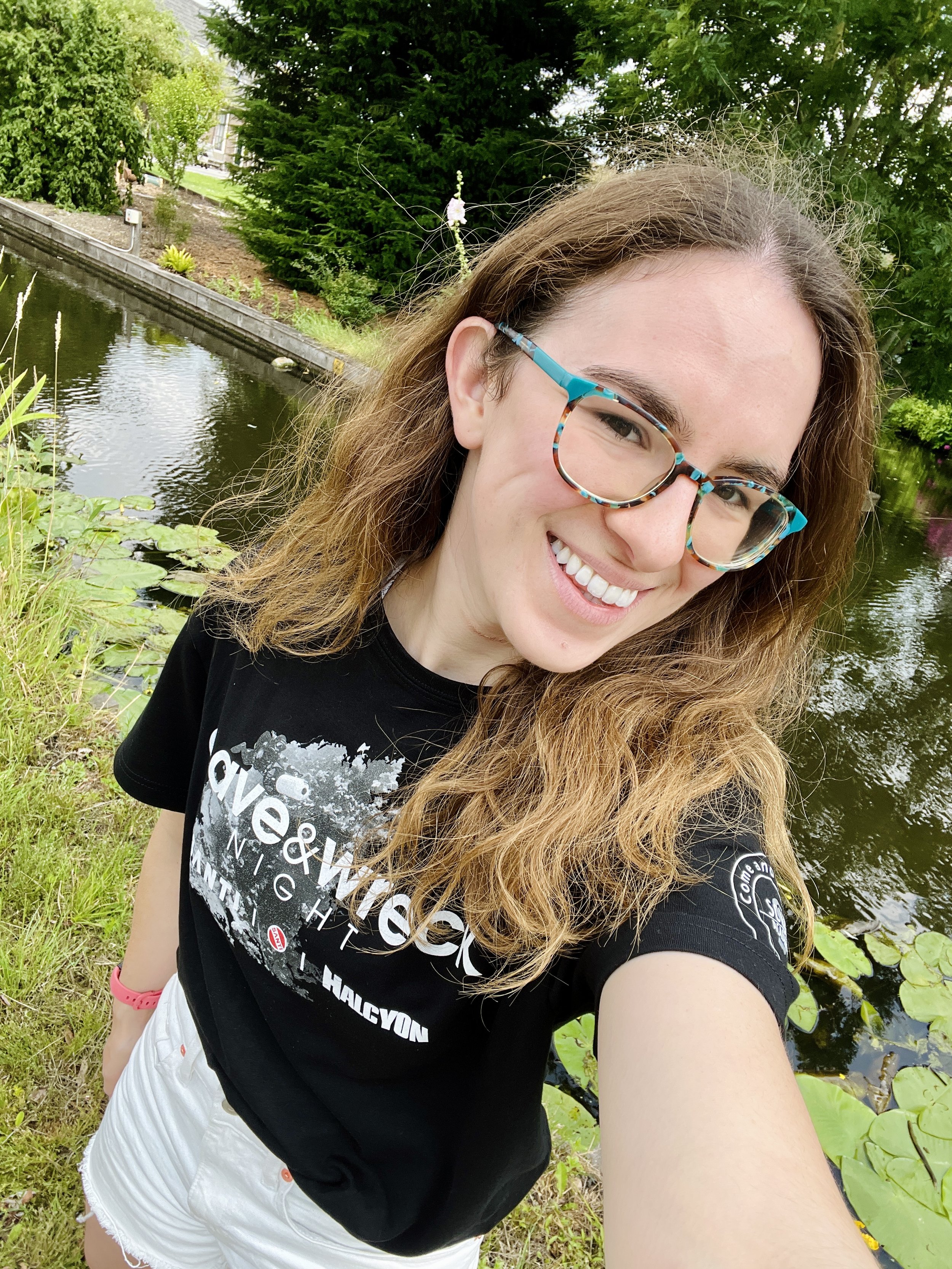
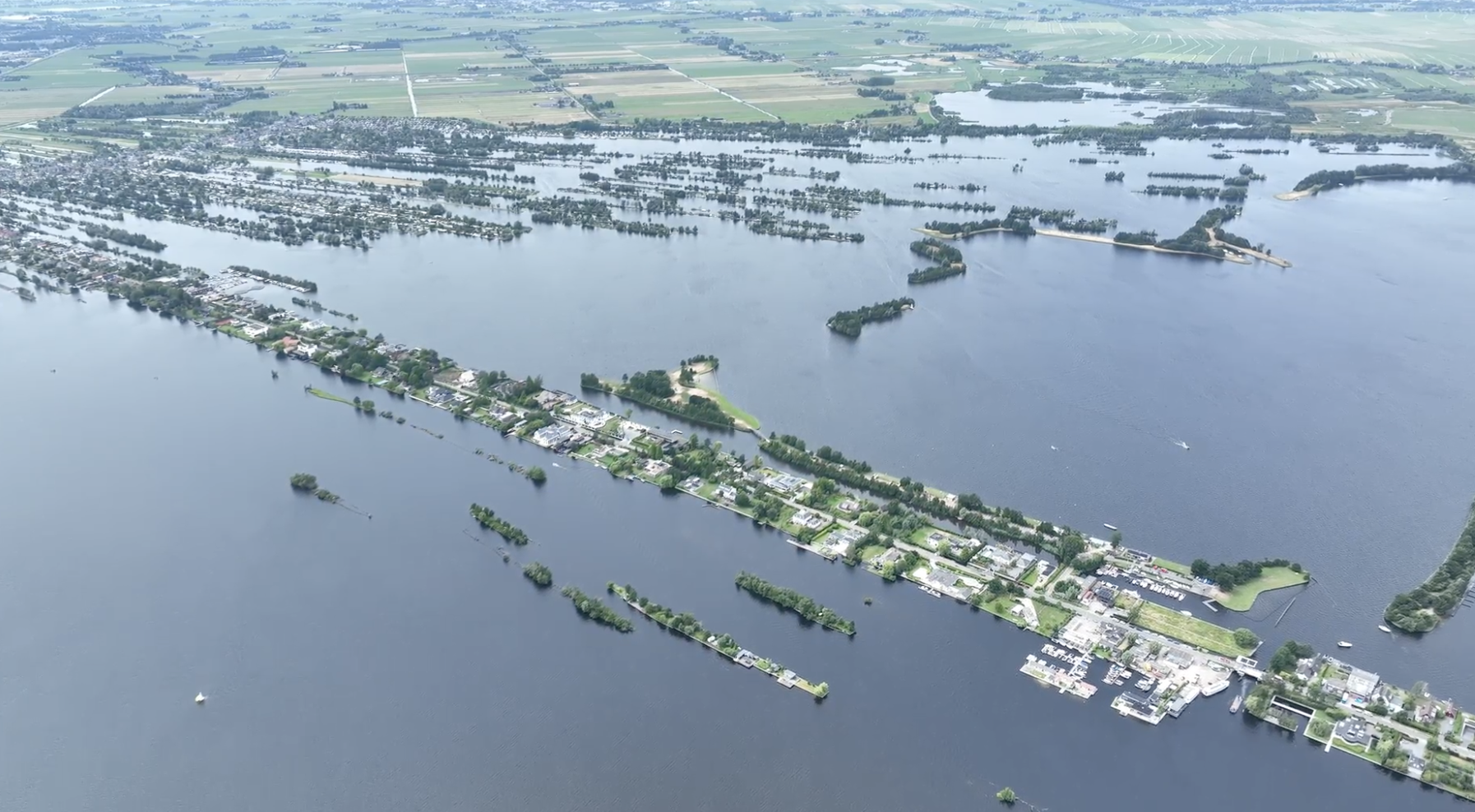
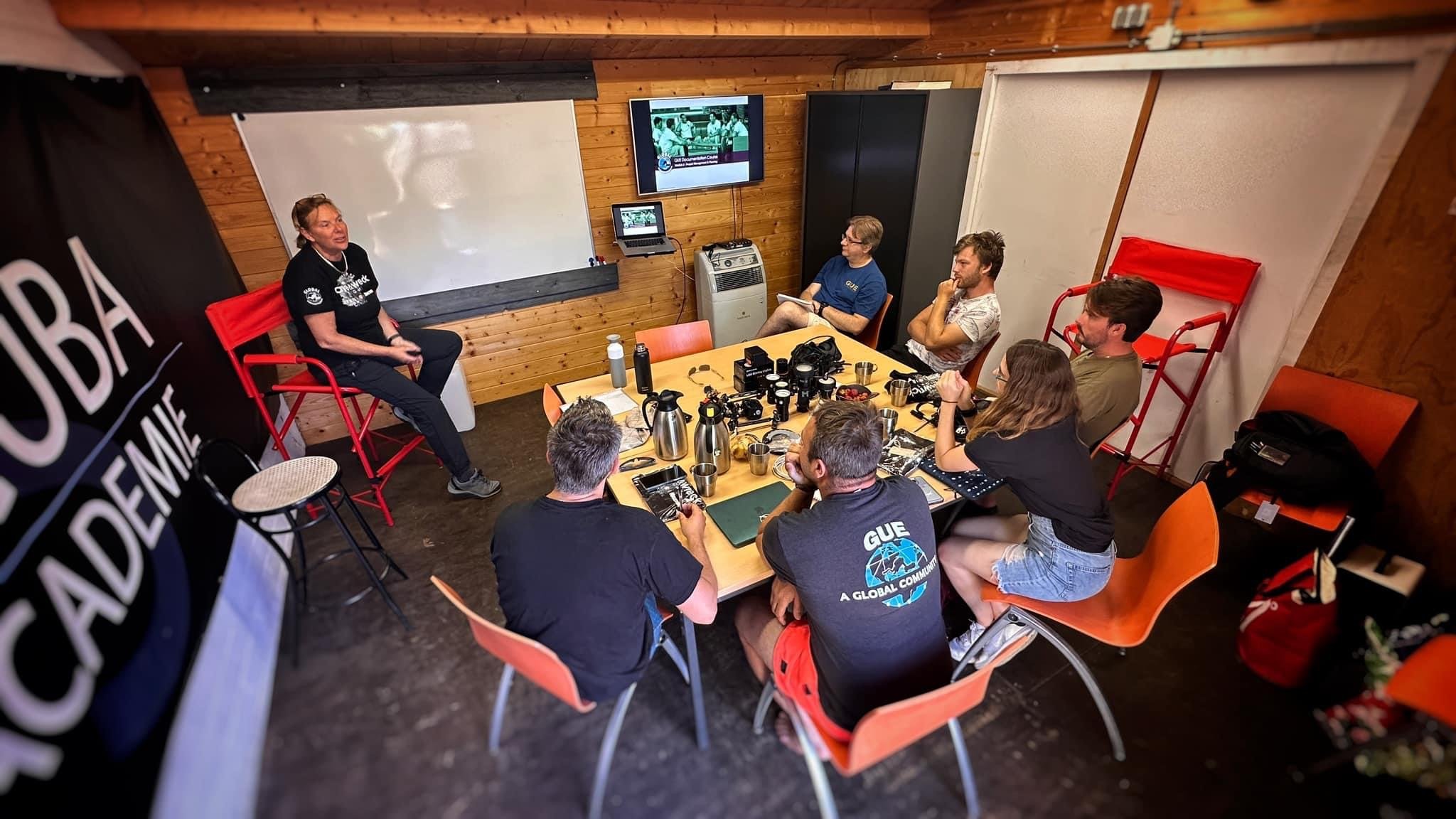
Photos by me, Lesley and JP
Part 2 – The pros and pros
So what IS the GUE Documentation diver course exactly?? Sitting in the middle of the GUE Photogrammetry-Scientific Diver spectrum, it is a course that includes training in basic photography/videography skills, survey and mapping techniques, content/report creation, and the process of documentation planning itself: ie team skills, communication, plan formation and overall management. Phew, sounds quite a lot! And indeed it is - as a holistic introduction to a whole host of project diving skills, it realistically could have been quadruple the length. It makes one want to learn everything in more detail later on, and every individual can take away something different from the course. It also leads to diverse teams like ours!
For me, I was very interested in gaining experience in project management and producing dive plans for underwater documentaries - as these were the skills that I lacked. My teammates were different. Jerome (a GUE instructor), and Jonathan (a commercial diver) wanted to see photogrammetry in action, and Nic wanted to learn more about underwater photography. Finally, Lesley and Sam - already cameramen and topside documentary makers - wanted to learn about the craft underwater, and also practise their skills using full face masks. Now, we all know that GUE’s standardised gear configuration makes diving safer and efficient in large team and when task-loaded. However, these guys have a special full face mask which is modular - meaning long-hose primary donation is possible. Also, sponsored by GUE, thus another aim of our Documentation Diver course was to test S drills and OOG management using modular face masks, and record real-time human reactions in upcoming exploration documentaries. The aim: to attract a more diverse audience to view underwater content, by providing an additional emotional element that one can relate to. Super cool!
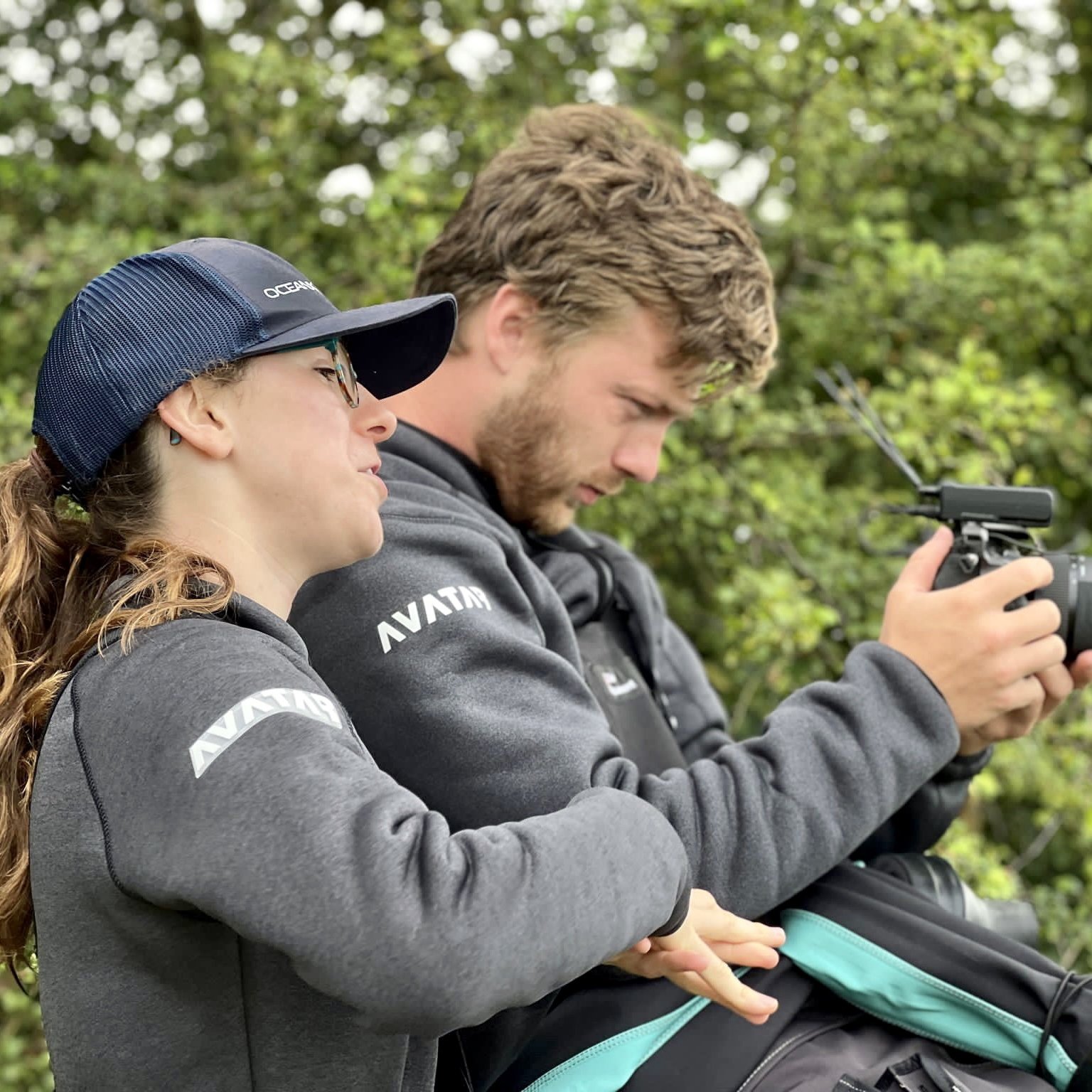

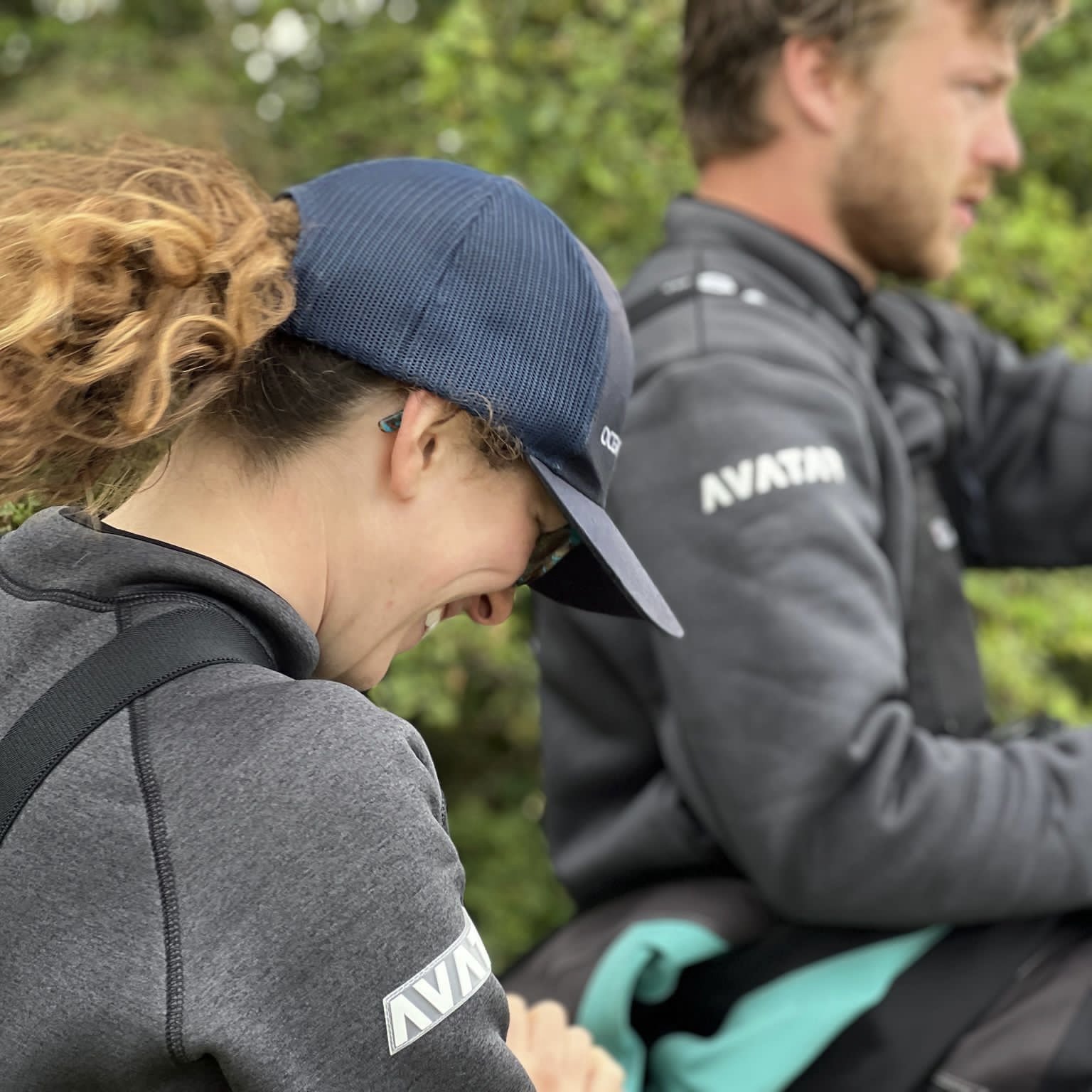

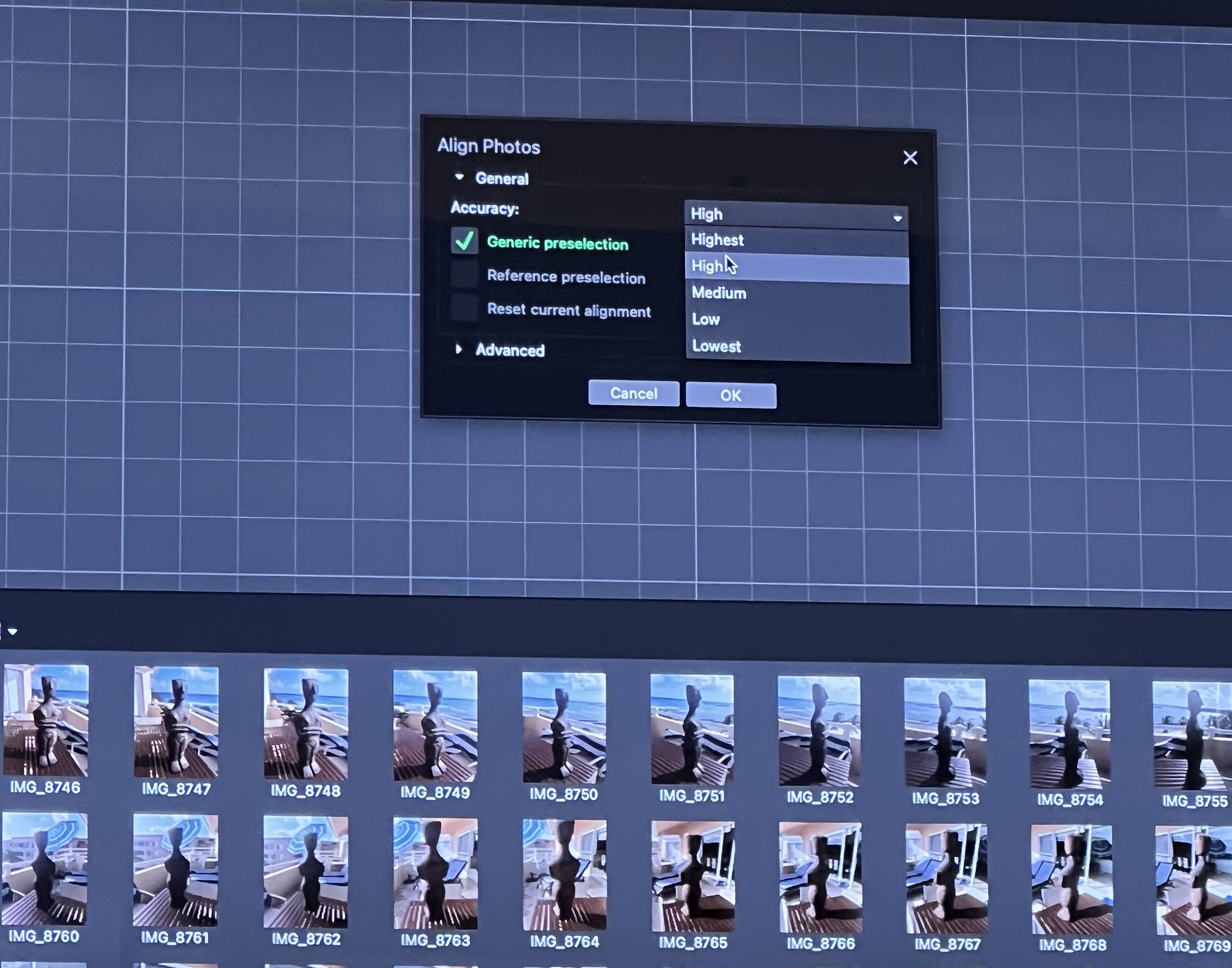
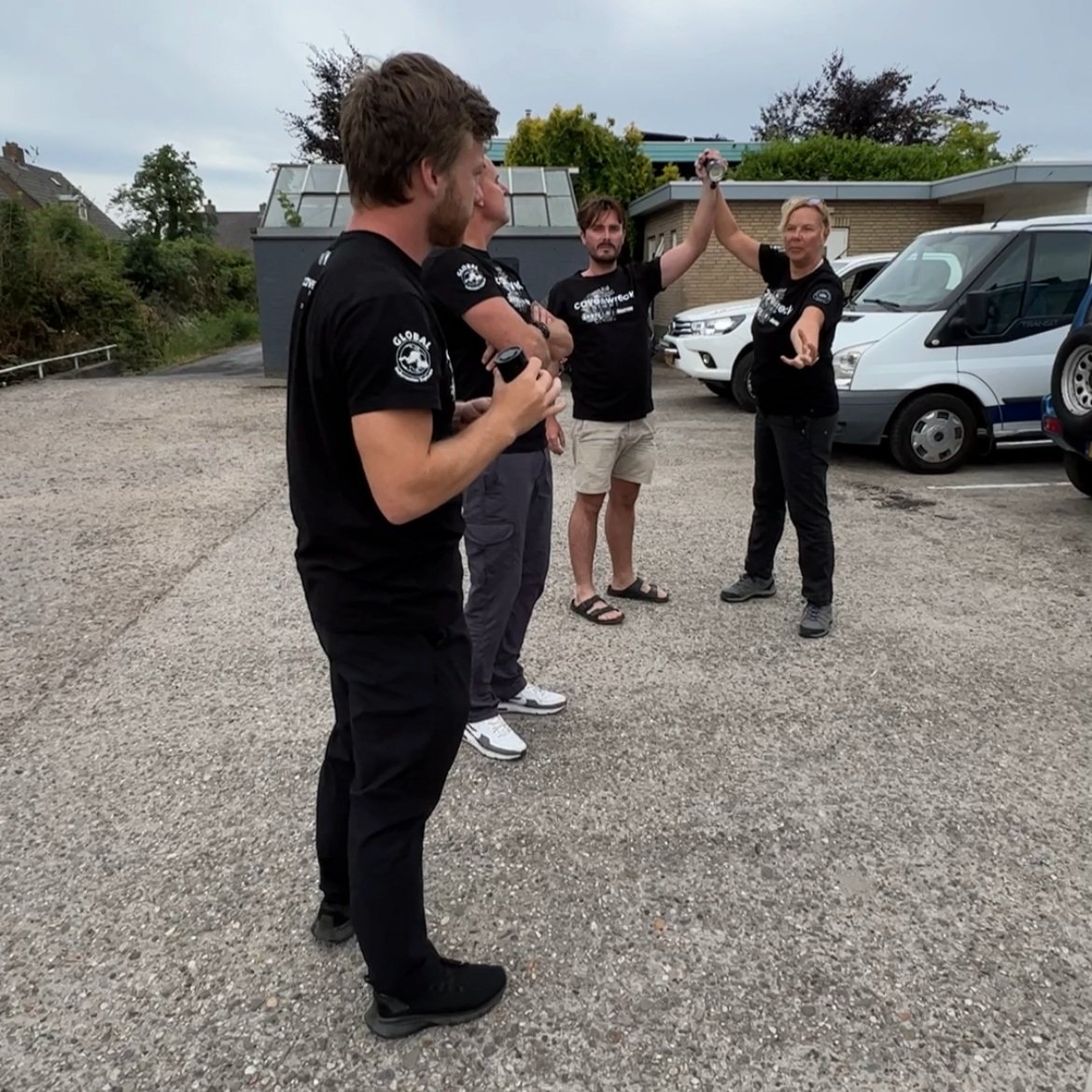
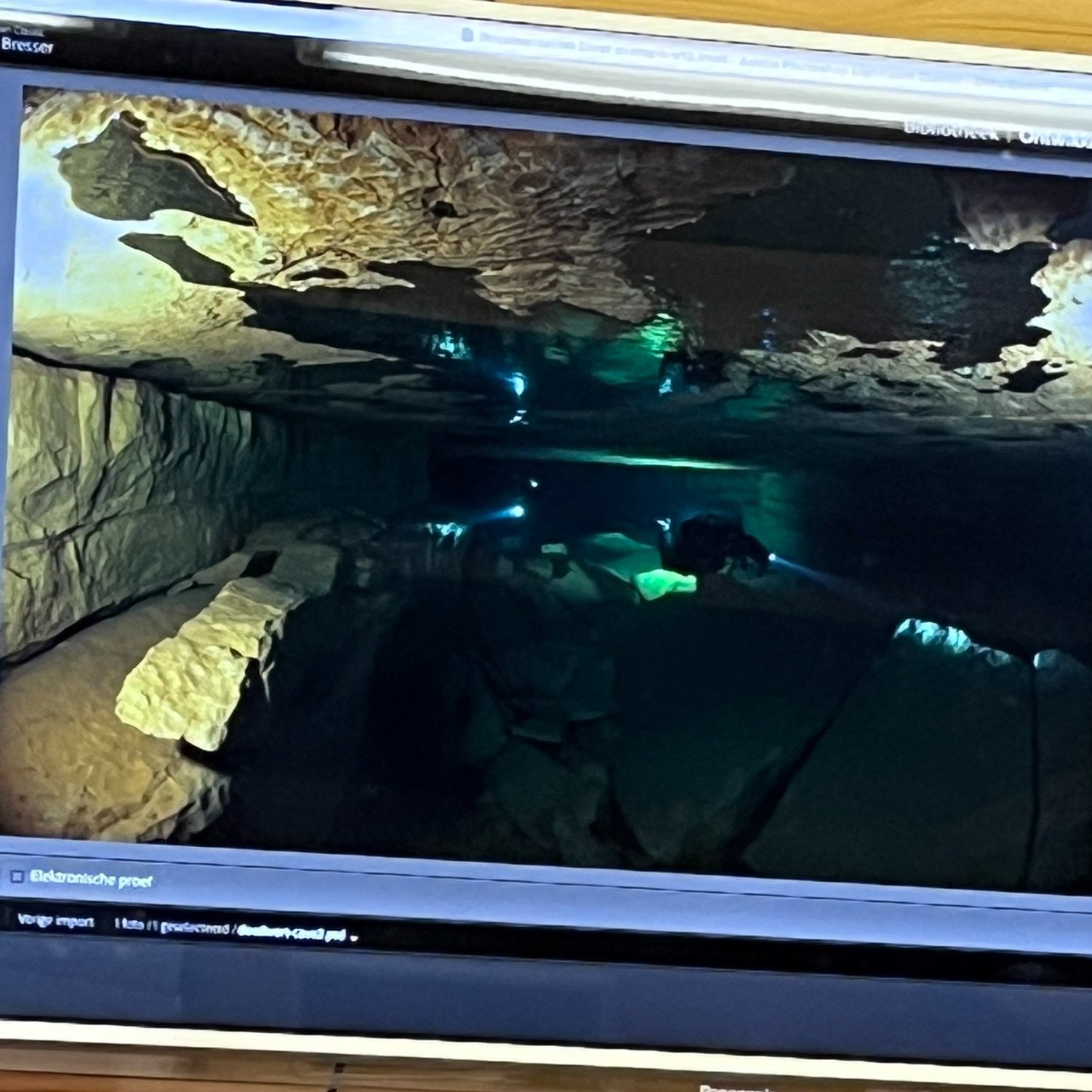
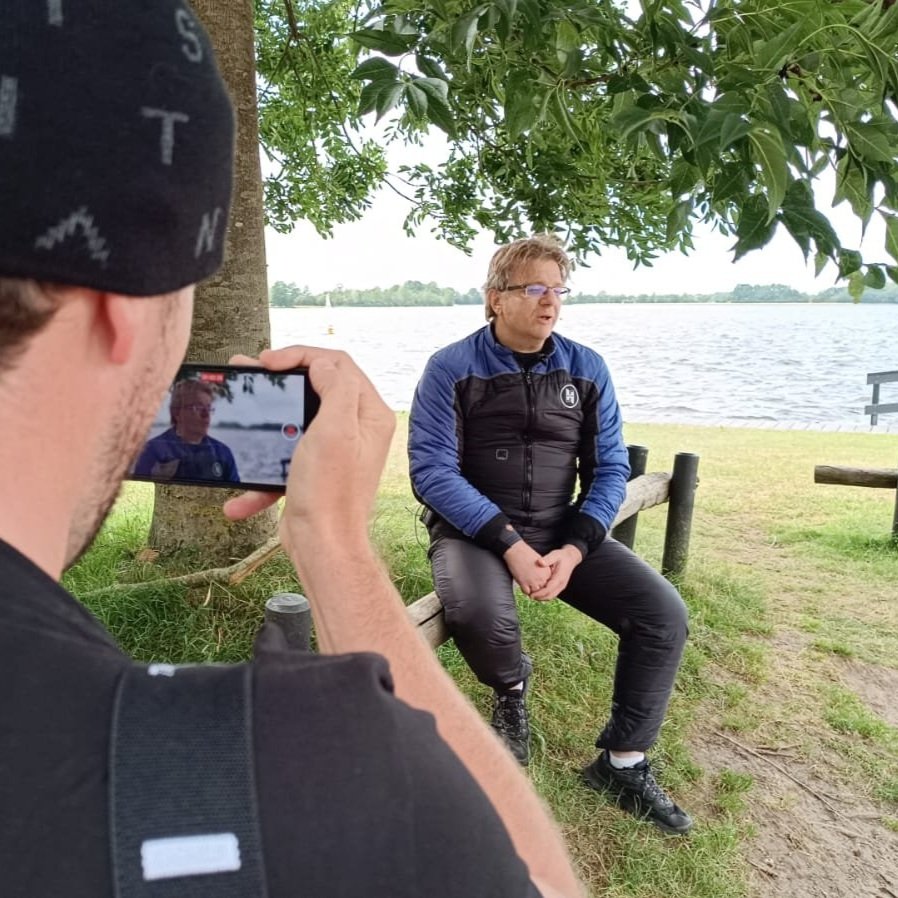
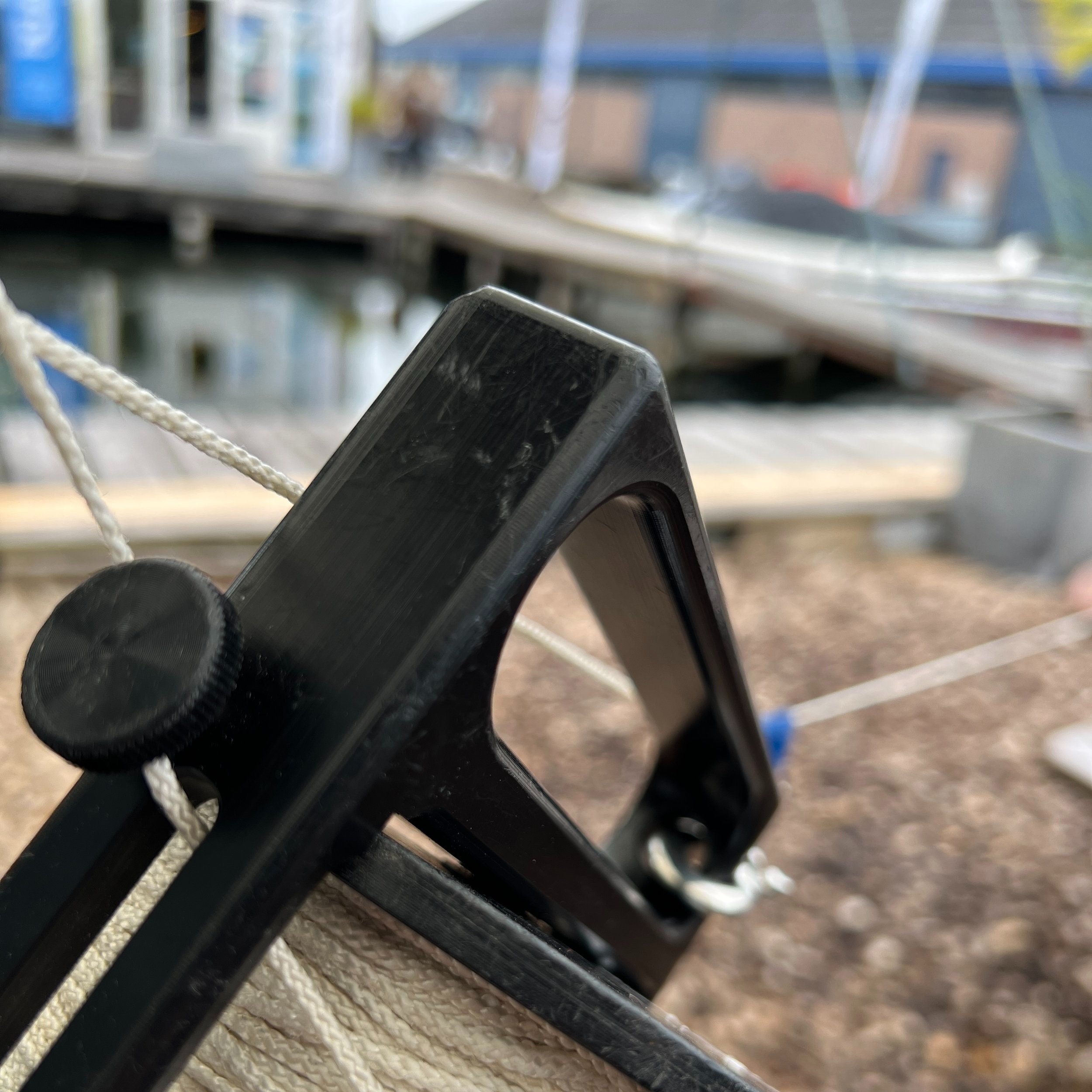
Images by me. Images of me: photo credit Sam
Part 3 - the wheels on the bus
The above and below images represent a manic few days, but one full of planning and problem solving! Each morning, we got a mini crash course in a variety of different elements of project design and documentation: whether looking at the software of Lightroom, Photoshop and metashape, to practising “cave” surveys using lines and reels. We examined the process of documentary creation: from designing a shot list, to establishing a storyboard - to even creating an underwater protocol for models and lighting communications. Then, in the afternoons, were our project dives! As the project manager :), I was responsible for leading/building a documentary about the sunken artefacts of Vinkeveen lake (focusing on a bus as our subject) - whilst utilising the full face masks for real-time commentary. I did many a presentation briefing, directed the b roll / topside interviews / drone footage, and planned underwater shots using 6 people, 3 cameras and too many lights. Without question, much caffeine was consumed :D.
Sometimes, the best way to learn is by realising you need to have the answers to certain questions… when the question itself arises underwater. Needless to say, the first dive was *interesting! However, with a few tweaks to our communication system, and a camera-lighting buddy pairing that was able to survey and shoot whilst in 3m vis - things then started flowing! It was great to see the results of the day’s dives - especially shots that illuminated the bus in a slightly mysterious yet beautiful way, albeit fighting against the backscatter and sometimes near darkness. Personally, one of the best moments was helping shoot the descent from the water surface to the top of the bus, whilst using the other team’ SMB as an out-of-site marker. The success being: we did not lose the bus in the black or get swept away :). Overall, I learnt so much about the underwater documentary making process - both scientific and artistic. From planning sketches of each shot, to field drills, to the actual underwater surveying shoots (where I was constantly stressed about losing all cameramen); we all had a blast! Stay tuned for the final deliverable of our product over the next few weeks!
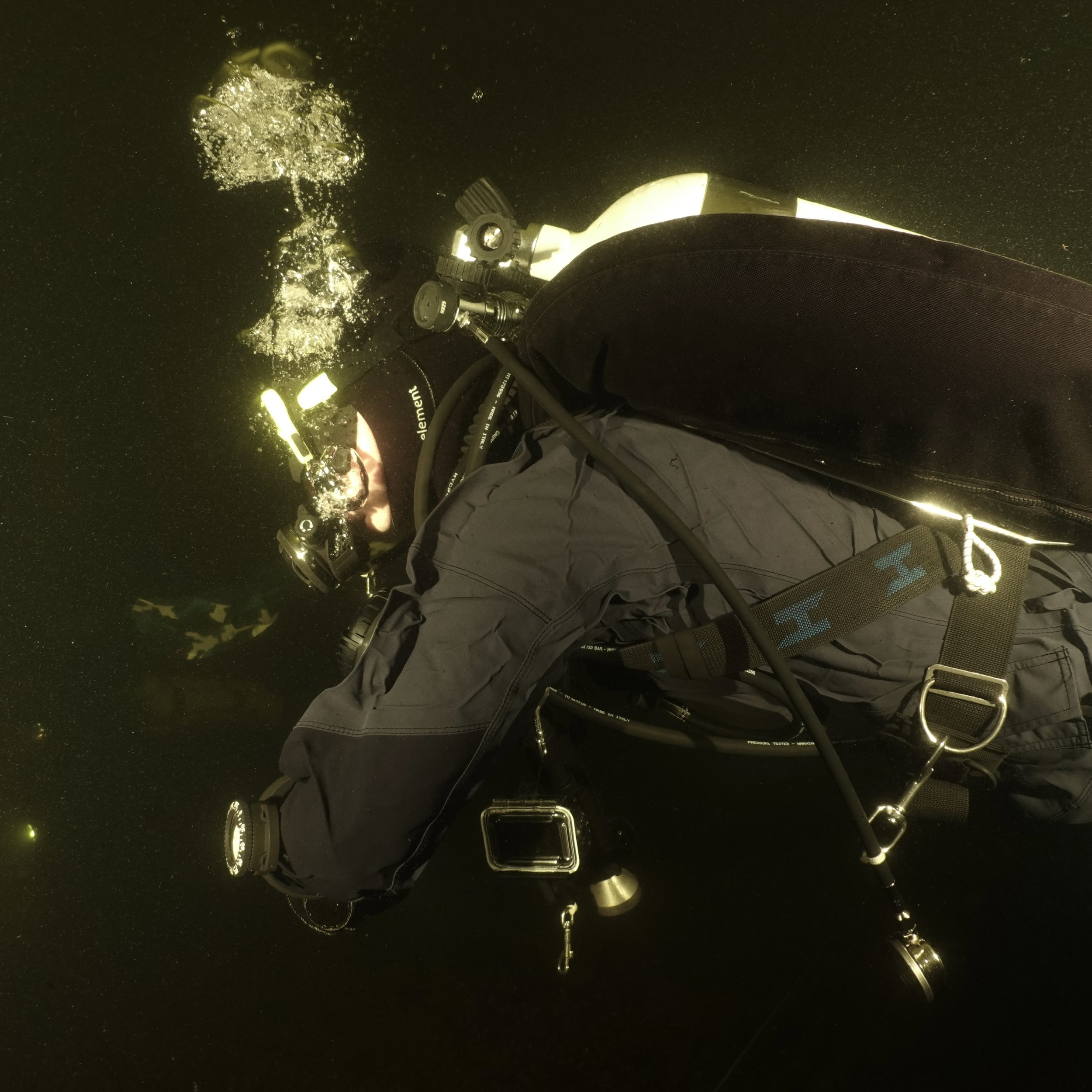

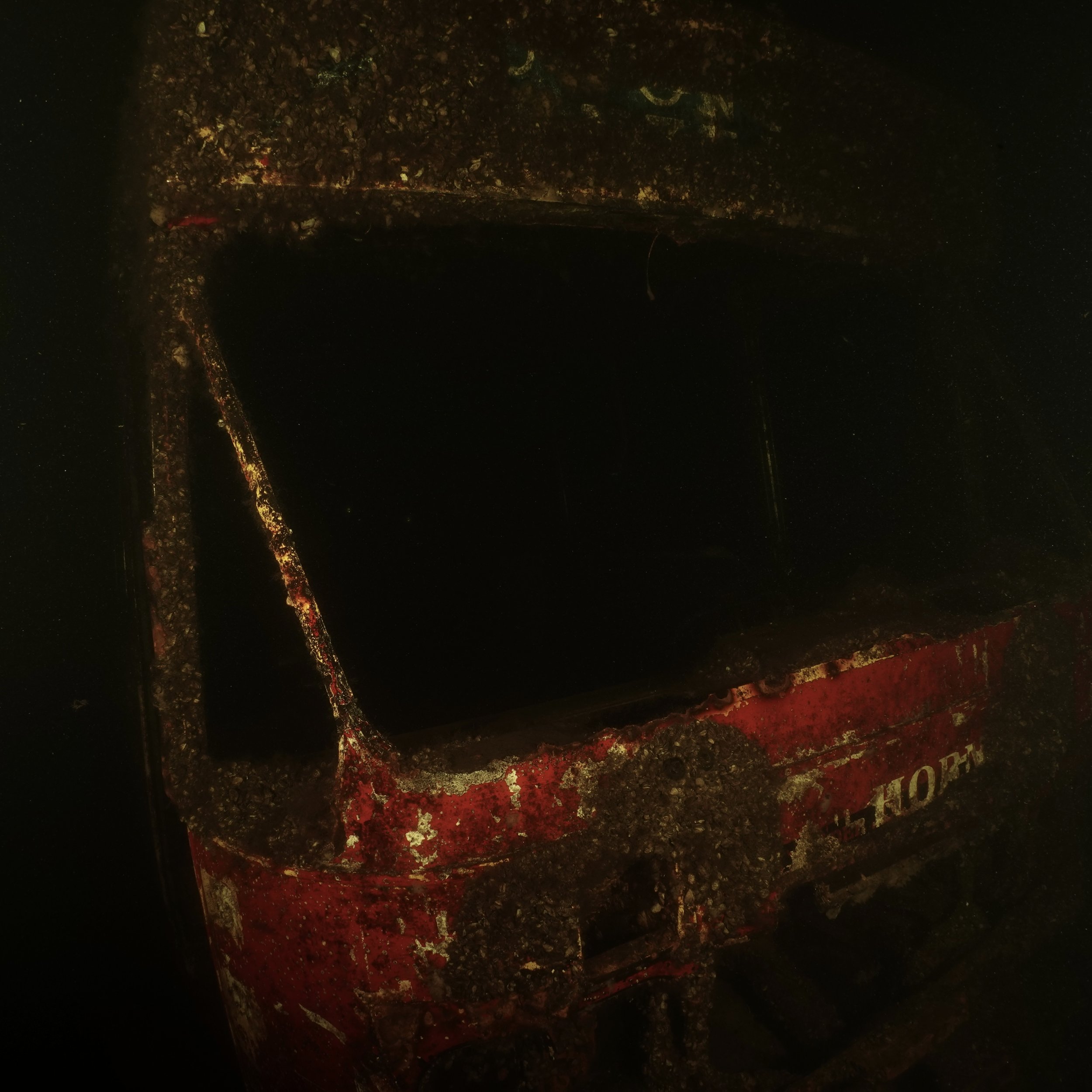
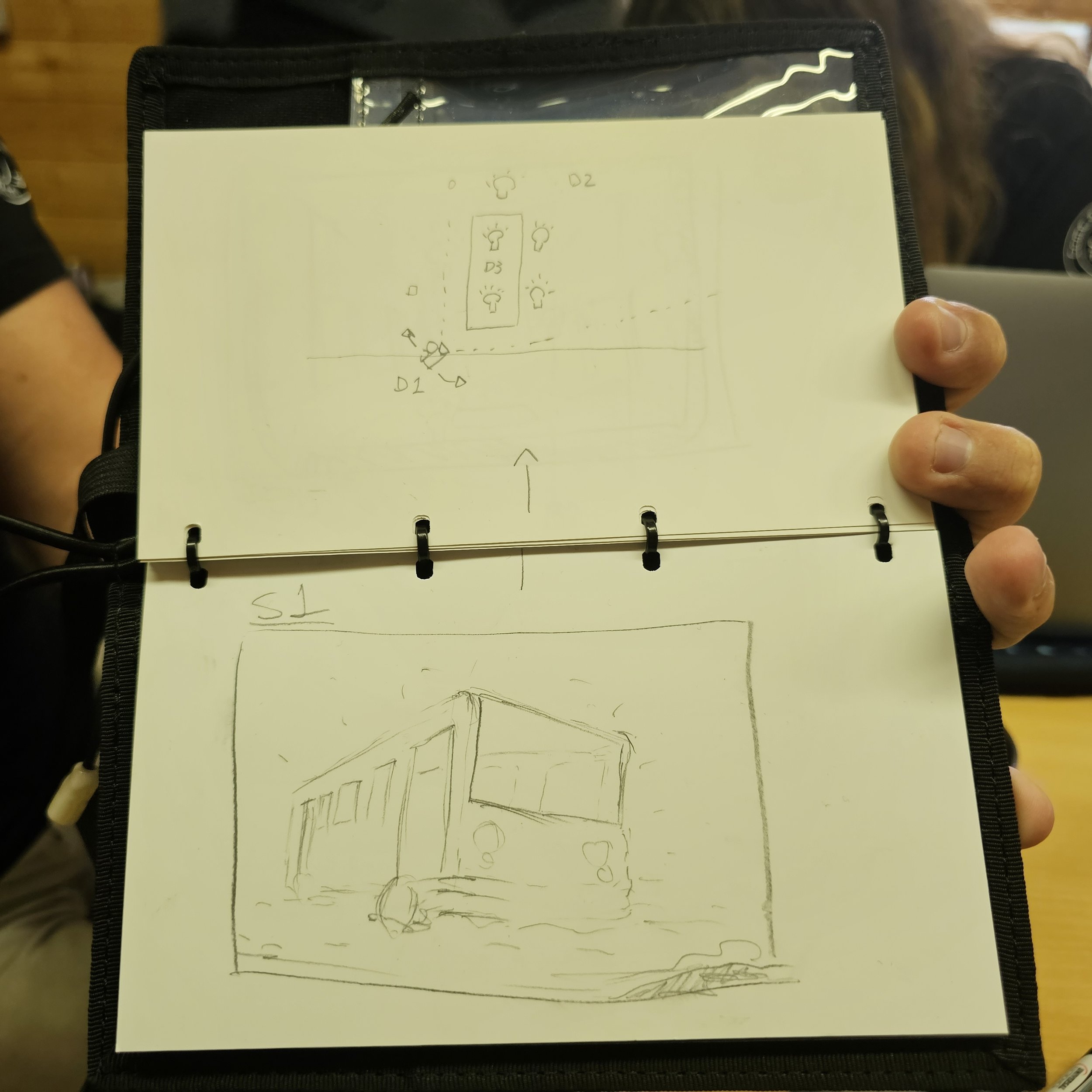

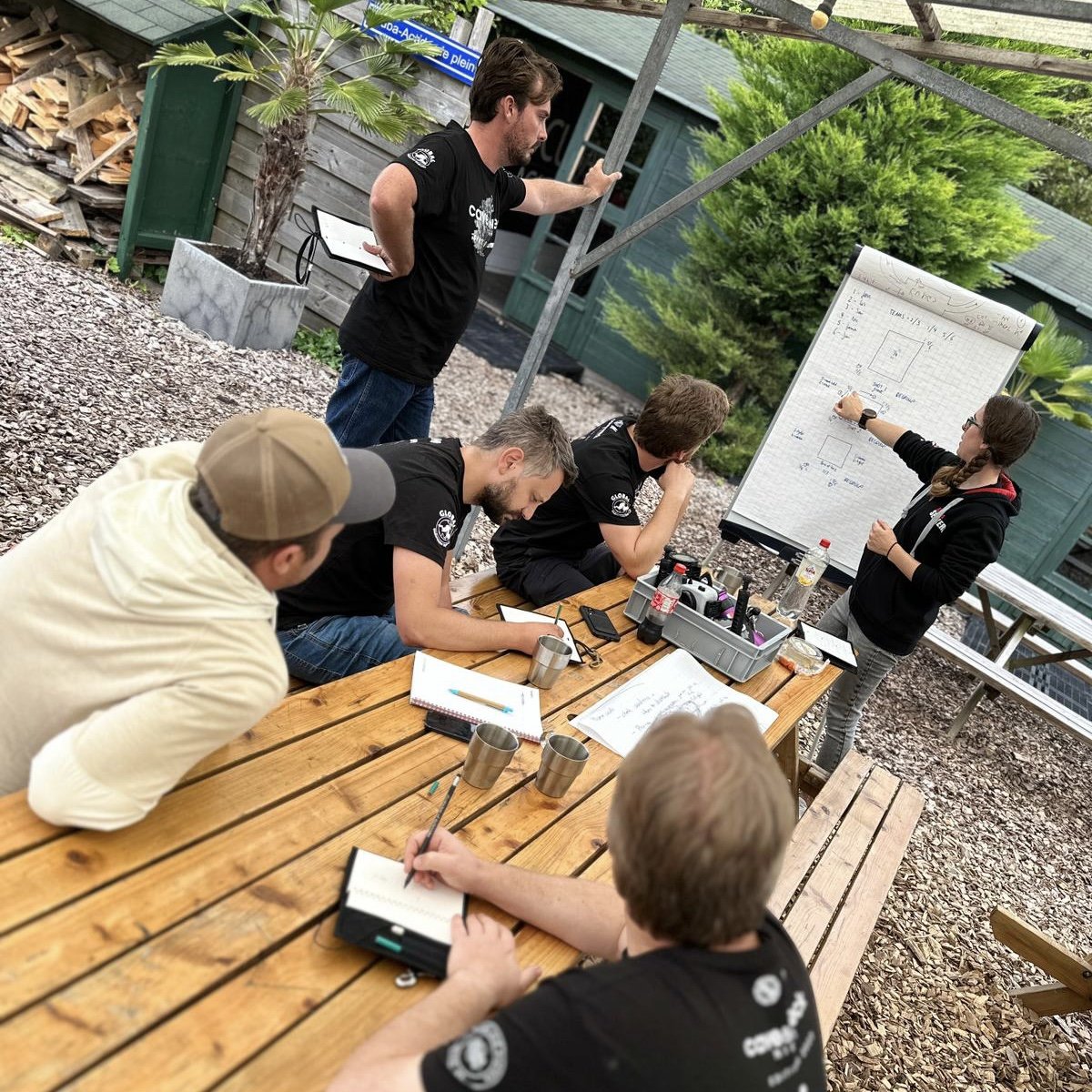
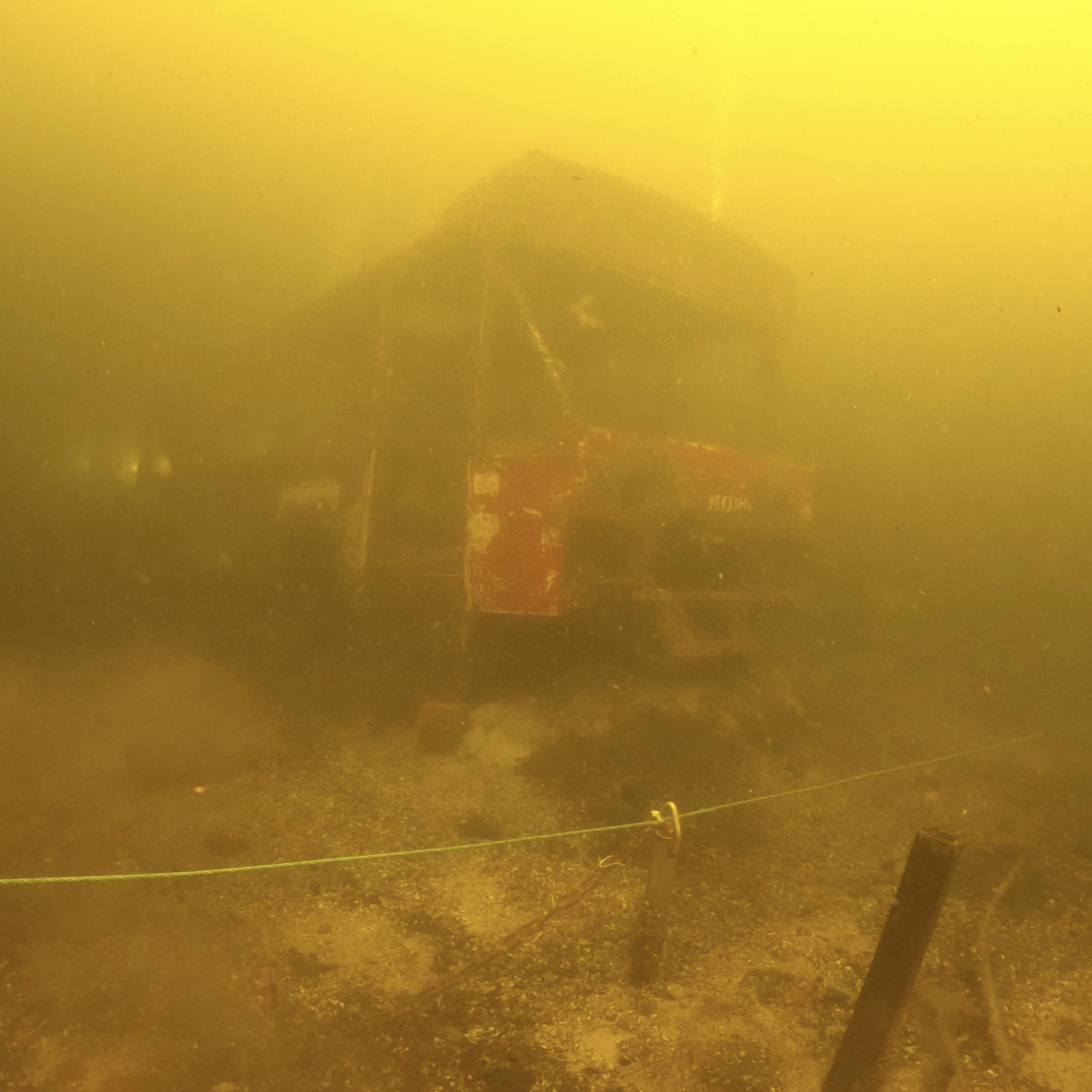
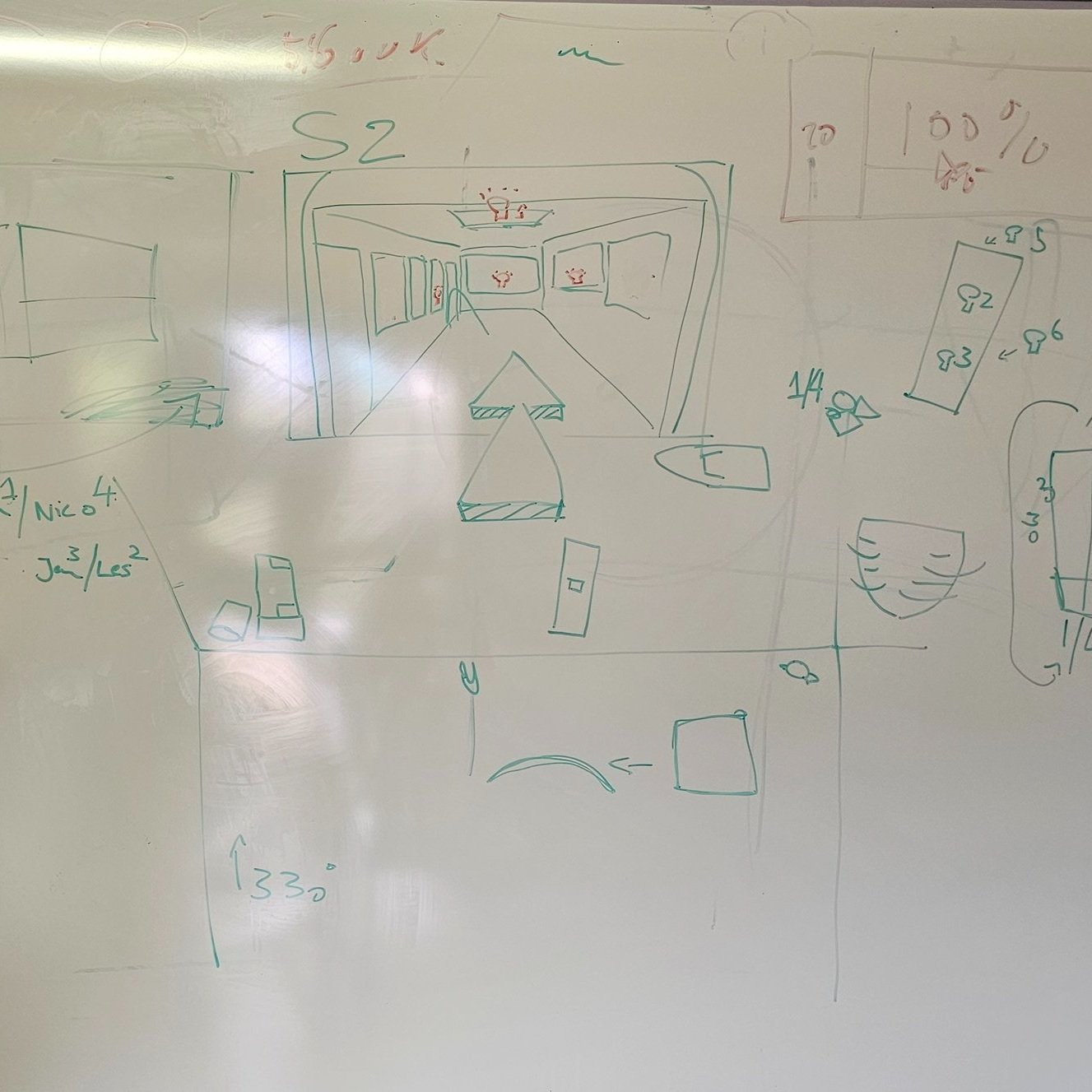

Topside image by me and JP. UW images by Nic
Part 4 - THANK YOU and a reminder :)
Thank you so much to JP and Anne Marie Bresser for such an interesting, intense and diverse course, along with all the teammates: Sam, Lesley, Jerome, Jonathan and Nic. Thanks for the imagery, inspiration and sharing your idillic life on the boathouse - I admit that swimming amongst the little houses and meeting everyone at the GUE Netherlands BBQ was such a highlight! Here’s to new connections and a door open to come back, intern and learn. Thank you!! In addition, thanks to Scuba Academie Vinkeeven for covering my gas and rental; much appreciated. Jonathan you are a LEGEND for gifting me some super swanky jetfins (we love the blue!!), and Jerome - one day I WILL come to France to do a DPV dive xoxo :).
This is also a reminder that anyone can call the dive at any time for any reason. Something that is so true, yet often not spoken about, and that I should have done on this course! In June, I cracked my rib in the midst of a chest infection that lasted literally the entire month. Participating in the GUE Project Baseline UK’s Blue Marine Foundation Week 2023, at Eyemouth, Berwickshire Marine Reserve, was no longer an option. Super sad, as for the first time, there would have been opportunities to; not only survey tech-level wrecks for benthic transects, but conduct recreational-level dives for microplastics and kelp (upon my request to go to Marcus!). It was the right call… however trying to complete all the Documentation dives 10 days later was NOT. Shout-out to everyone for helping me with my twinset; but still, lifting 40+kg was not great. On the last morning I cracked another rib due to a lack of core muscle activation. Cue only diving for 15 mins, losing all movement in my right side (and my ability to lift a light), and needing the guys’ help to even get my fins off. Calling the dive for myself should have happened, and indeed, see below for an image of how I felt upon my return to the UK. Now the rest of July is about not diving, but resting, writing, and planning for autumn manic adventures… eeek!!
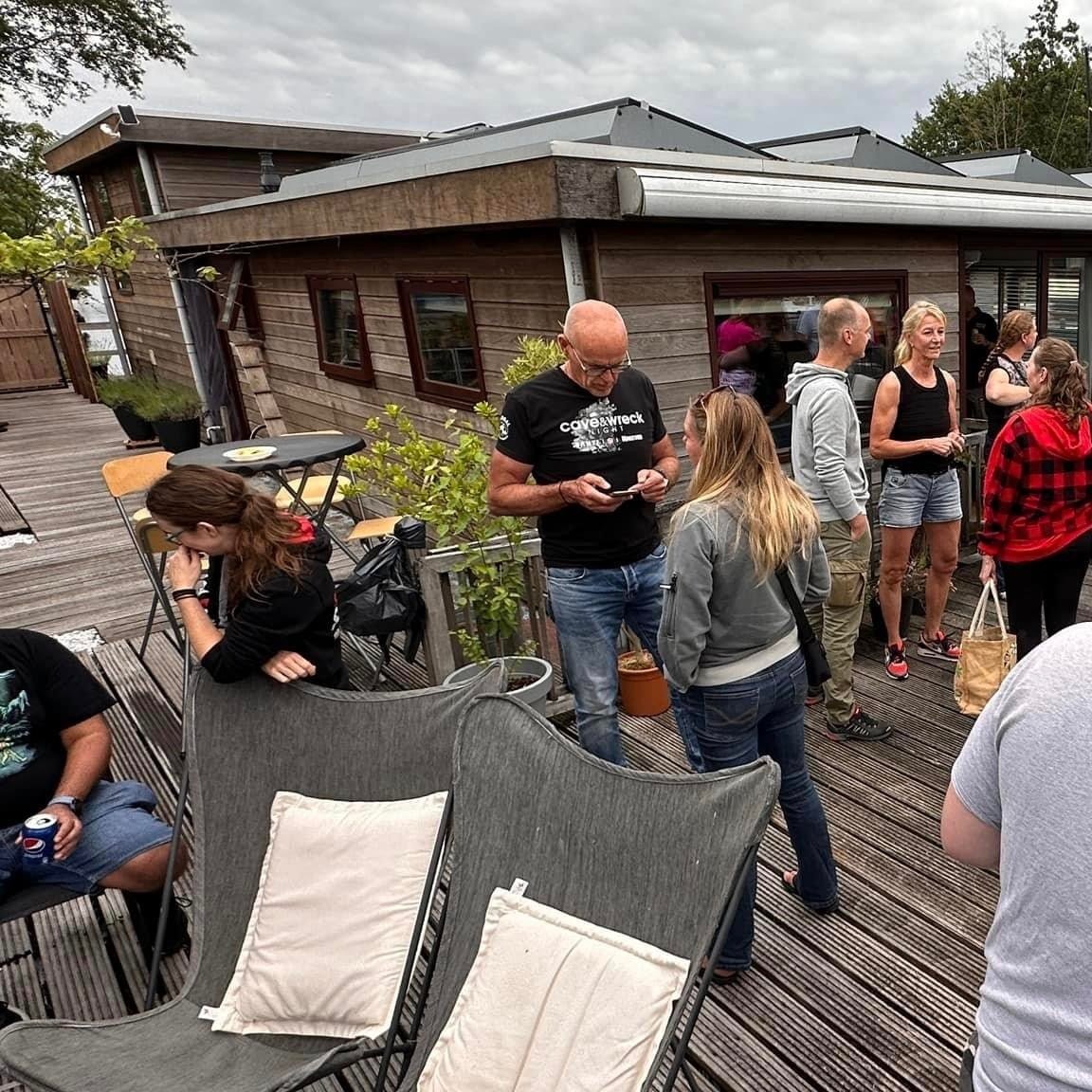
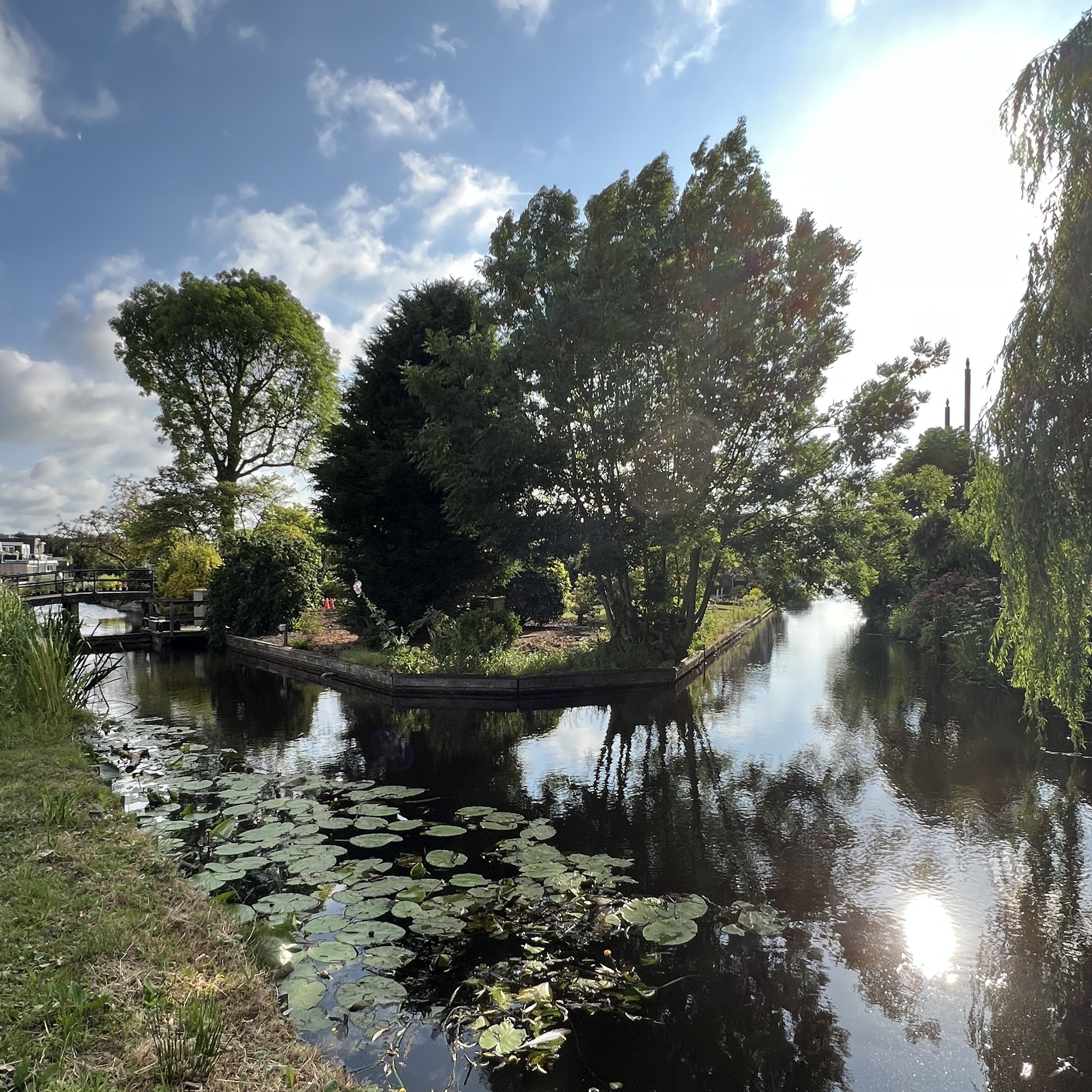

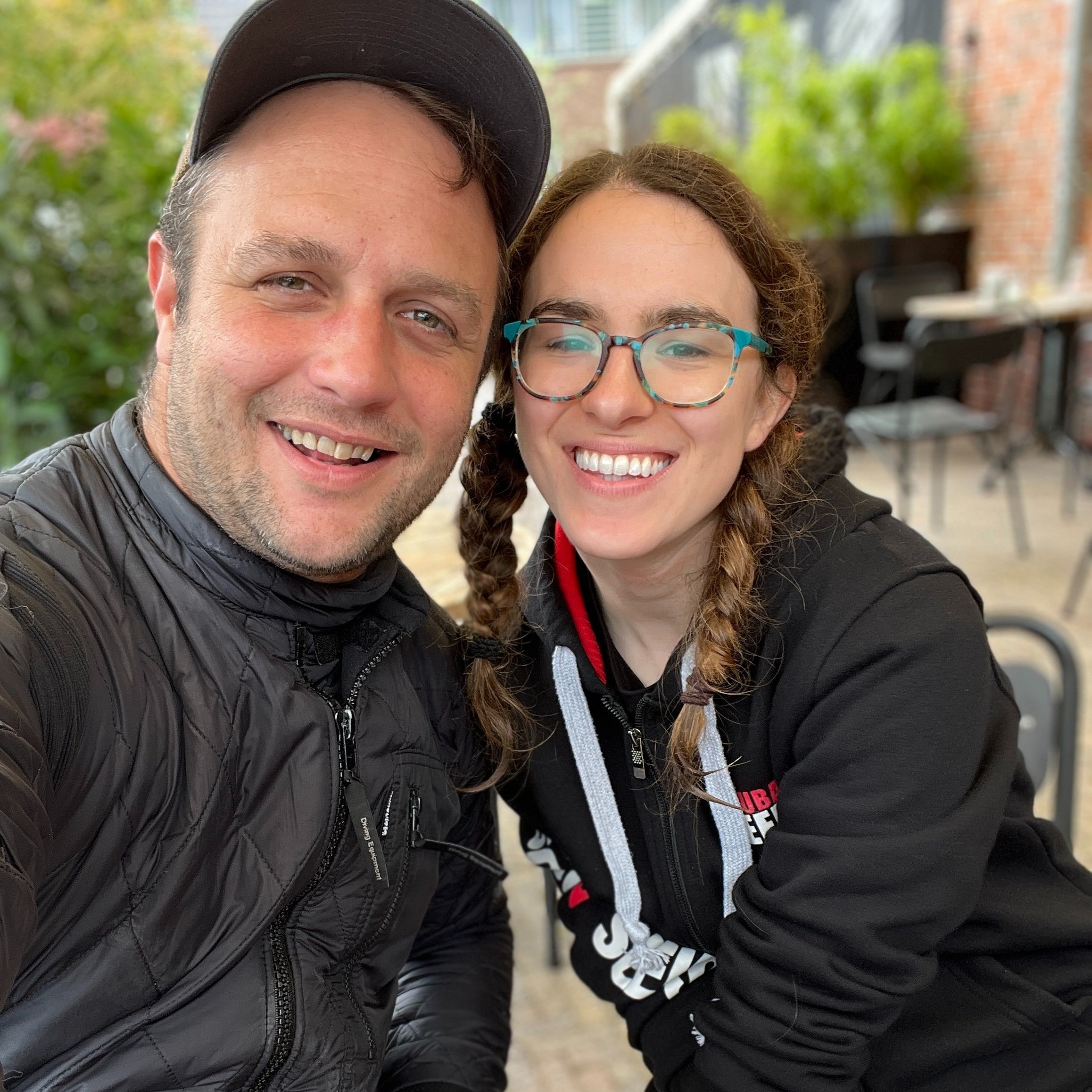

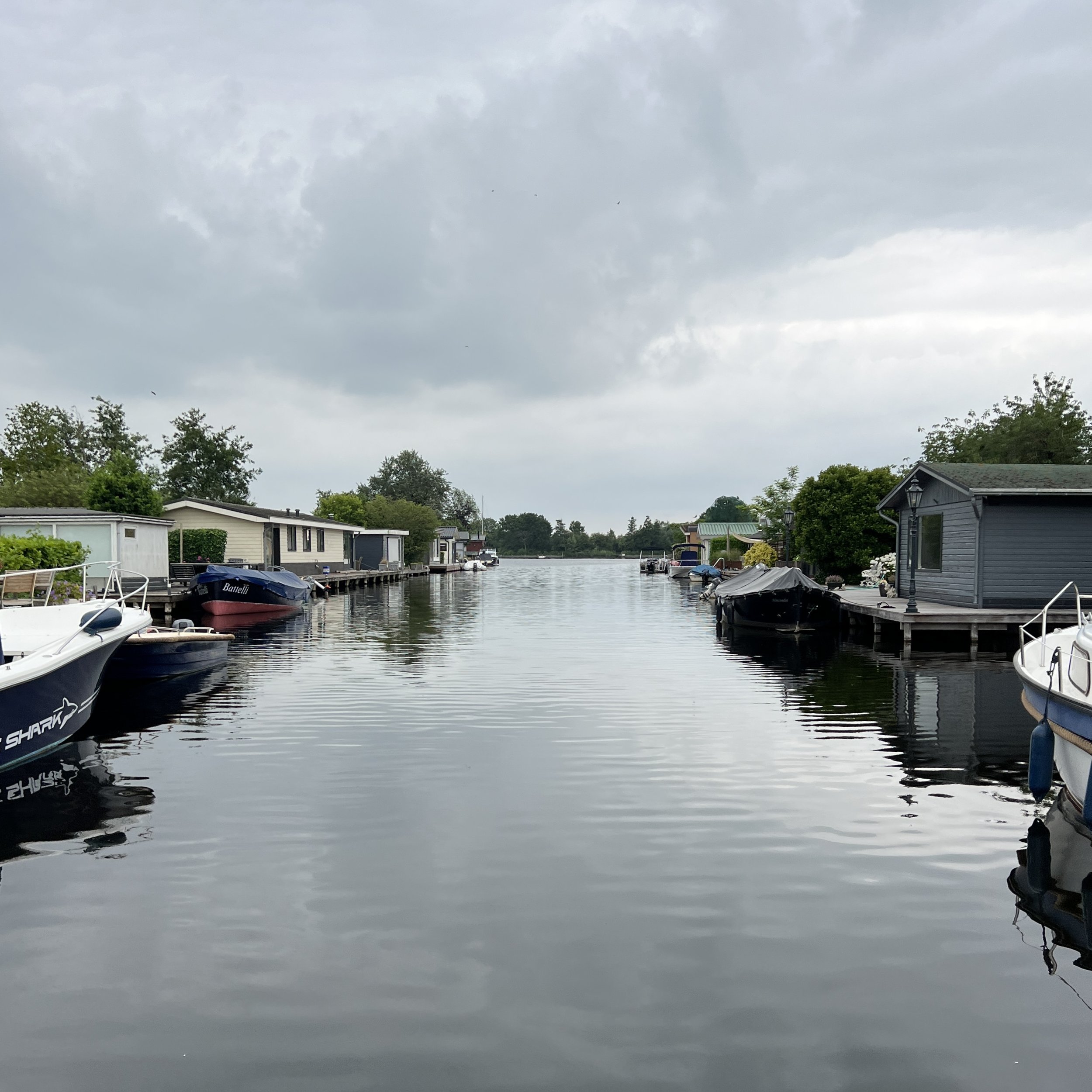
Photos by me, Lesley, Jerome, JP and AM